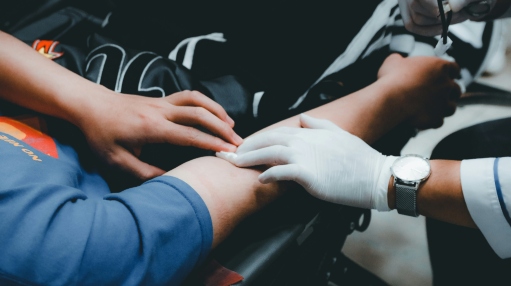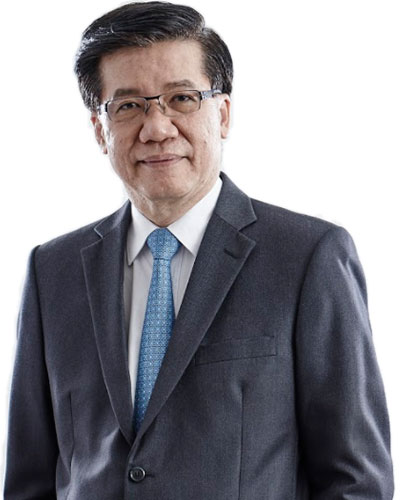Strengthening the Malaysia's Blood Supply for a Healthier Tomorrow

A safe and sufficient blood supply is the backbone of modern healthcare. From emergency surgeries to cancer treatments, childbirth complications to chronic illnesses, the need for blood is constant and growing. In Malaysia, meeting this demand is becoming increasingly urgent—driven by demographic changes, lifestyle trends, and evolving healthcare needs.
A System Built on Safety and Trust
Every drop of donated blood undergoes rigorous screening to ensure it is free from infectious diseases such as HIV and Hepatitis. But beyond testing, the system relies heavily on one vital principle: trust. Donors must be honest during health screenings to safeguard patients’ lives.
As Subang Jaya Medical Centre (SJMC) Consultant Haematologist Dr Ng Soo Chin explains, even lifestyle habits can affect one’s eligibility. While certain high-risk behaviours like intravenous drug use lead to permanent deferral, more common habits such as smoking, vaping, or drinking alcohol can temporarily disqualify donors. For instance, smoking or vaping should be avoided for at least a week before donation, and alcohol should not be consumed within 24 hours of giving blood.
“We are not just looking to fill bags, we are ensuring every unit of blood is as safe as it is life-saving,” Dr Ng said. And while donors are often motivated by altruism, he reminds us that eligibility is not about judgement, it is about protection. “This is a life-or-death matter. It is our duty to ensure the safety of every patient who receives a transfusion,” he stressed.
The Challenge of Rising Demand
Malaysia’s population is ageing. Currently, over 8% of Malaysians are aged 65 and above—a figure projected to nearly double by 2040. Older adults typically require more medical support, including surgeries and transfusions for chronic illnesses such as cancer and heart disease. As a result, the demand for blood is growing steadily.
While hospitals are implementing measures such as intravenous iron therapy to reduce unnecessary transfusions, a steady and adequate blood supply is essential, now more than ever.
By embracing smarter use and valuing every drop given by generous donors, the country can be better prepared for the challenges ahead.
“Blood donation is not just a medical necessity. It is a human connection and in the years to come, we will need more of both,” Dr Ng highlighted.

A robust blood donation culture is about building habits and systems that people trust and return to,” Dr Ng said.
Where Malaysia Stands Today
Malaysia ranks second in blood donation rates within ASEAN, with about 2.2% to 2.3% of the population donating blood annually. However, this still falls short of the World Health Organization’s (WHO) recommended target of 3.5% to 5%. Despite not leading the region, Malaysia holds its own – outperforming larger ASEAN countries like Indonesia, Vietnam and Thailand, all of which have donor rates under two per cent.
Dr Ng credited Malaysia’s relatively strong performance to the establishment of a national blood transfusion centre decades ago.
“The early development of regional transfusion centres and dedicated blood banks really helped set the groundwork. We now have a much more accessible and organised infrastructure for both donors and medical institutions.
“This system has allowed more Malaysians to participate in blood donation consistently and has made it easier for healthcare providers to manage and distribute the supply across the country.
“Malaysia has come a long way. But as with anything in medicine, consistency is key. A robust blood donation culture is not just about one big campaign, it is about building habits and systems that people trust and return to,” Dr Ng mentioned.
And with the country already standing tall among its peers, perhaps the next step is within reach.
Every Drop Counts
Blood donation is more than a medical necessity—it’s a reflection of compassion, and shared responsibility. With the right strategies in place, Malaysia can build a stronger, safer, and more sustainable blood supply system to serve generations to come.
Whether it’s your first time or your hundredth, every donation matters. Because for someone out there, your blood could be the difference between life and loss.
Source:
- Why a Safe Blood Supply is The Backbone of Modern Healthcare
- Malaysia’s Aging Population is Fueling a Rising Demand For Blood Donations
- Malaysia Ranks Second in Blood Donation Rates in Asean, But Still Short of WHO’s Benchmark of Three Per Cent
- Cigarettes, Vapes, Alcohol: What Lifestyle Habits Disqualify You From Donating Blood?
